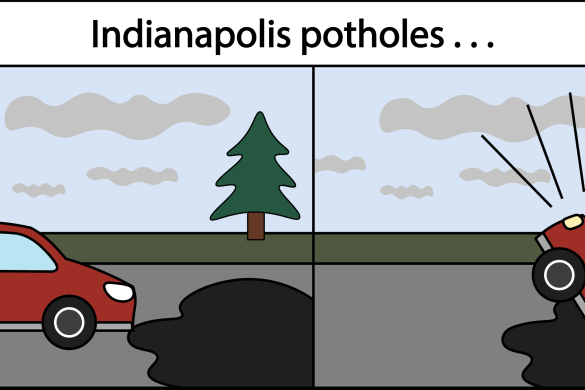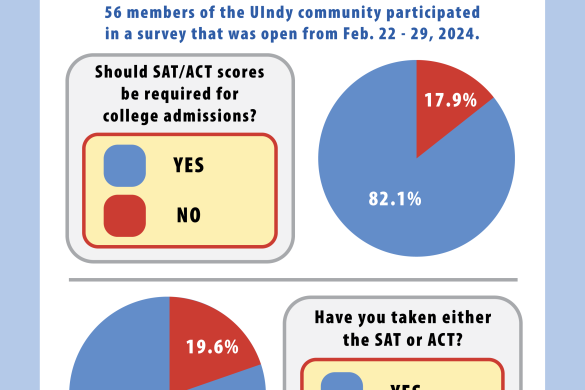People are suffering with mental health issues, publicly calling themselves out and even shaming themselves, all for the sake of a little laugh. This is our current reality: “I hate myself,” says thousands of college students across the nation to the adoration and celebration of those around them.
This is raising questions about whether we should accept when others ridicule themselves for the sake of humor and the responses of others. Many others ask whether we should allow people, especially those who are young, in high school and college, to make light of incredibly serious topics. The answer to these questions is yes, we should.
When people make fun of themselves, even in a manner that seems so drastic, what they are actually doing is attempting to move forward and improve upon themselves. In hearing others make statements seemingly in detriment to themselves, it should be seen as positive rather than negative. Of course, it is only beneficial to offer any help to someone who feels the need to insult themselves for humor, in no way is that discouraging.
To best explain, consider this hypothetical example: Everyone around the office is stressed from their workload, and they’ve all run out of patience. Finally, there comes a breakthrough when you believe that you’ve found some important information. So you take it to the boss, and then you both discover the information is very out of date. You look at each other, and now things are awkward.
The simplest solution to release the tension is to tell a joke about how you utterly failed. In doing so, you are taking responsibility for the mistake that you made and also relaxing everybody in the room.
Helpguide.org discusses the concept of using humor as a tool to manage conflict, and there are a number of reasons as to why a self-deprecating joke helps out in these kinds of scenarios. You are demonstrating that you are aware of the other person’s perspective, you are being more open with him or her, and you are sharing a laugh with him or her, which is always beneficial to any relationship.
Maybe digging into yourself won’t get you redemption this time, but it can still make you feel better. It may seem odd to say that making fun of yourself is good for you, and that’s a fair perspective. Up until a study by the University of Granada in 2018, most research said otherwise. This study, conducted by researchers at the Mind, Brain and Behaviour Research Centre, concluded that “In particular, we have observed that a greater tendency to employ self-defeating humor is indicative of high scores in psychological well-being dimensions such as happiness and, to a lesser extent, sociability,” according to sciencedaily.com.
In response to the awkward situation, when you sit down with your coworkers, you smile and insult yourself. You may make a few of them laugh. Others may look away, but you’re showing that you’re fully aware of your situation. You accept it and now you’re moving on by laughing at yourself.
When someone tells a self-deprecating joke, the person is denoting a certain level of emotional awareness. Theneurotypical.com cites, “Daniel Goleman’s five components of emotional intelligence,” lists self-awareness as one of the most important factors in determining one’s emotional intelligence, defining it by saying “self-awareness depends on one’s ability to monitor one’s own emotional state and to correctly identify and name one’s emotions.” Self-deprecating humor is one of the signals of someone who is self-aware, and thus someone who has a higher emotional intelligence.
Verywellmind.com states that depressive episodes are most prevalent among adults between the ages 18 to 25, the typical ages of college students. As a college student, it’s common for other students around you to frequently make these self-deprecating jokes when they get stressed or things get awkward. I deal with issues of mental health myself, and I, on occasion, make these same kinds of jokes. It’s understandable for an outside observer to have some sort of initial discomfort when they hear someone talk about themselves in this sort of way, but I ask that this attitude shifts to one that is more progressive.
When you happen to hear students openly say these “self-deprecating” comments, yes, please ask if they’re OK or whether they need anything. But also be aware that this is how many tend to cope. Sure, it is quite blunt and extreme, but these statements of self-deprecation may serve another purpose. We may be attempting to ease the tension in the room, showing awareness of the mistakes we’ve made, or sharing a laugh with those around us who also may be suffering. We may be opening up about what we’re dealing with and how we feel and becoming aware of just how major our own struggles are. Through these jabs at ourselves, we may be fearlessly making an attempt at progress.







